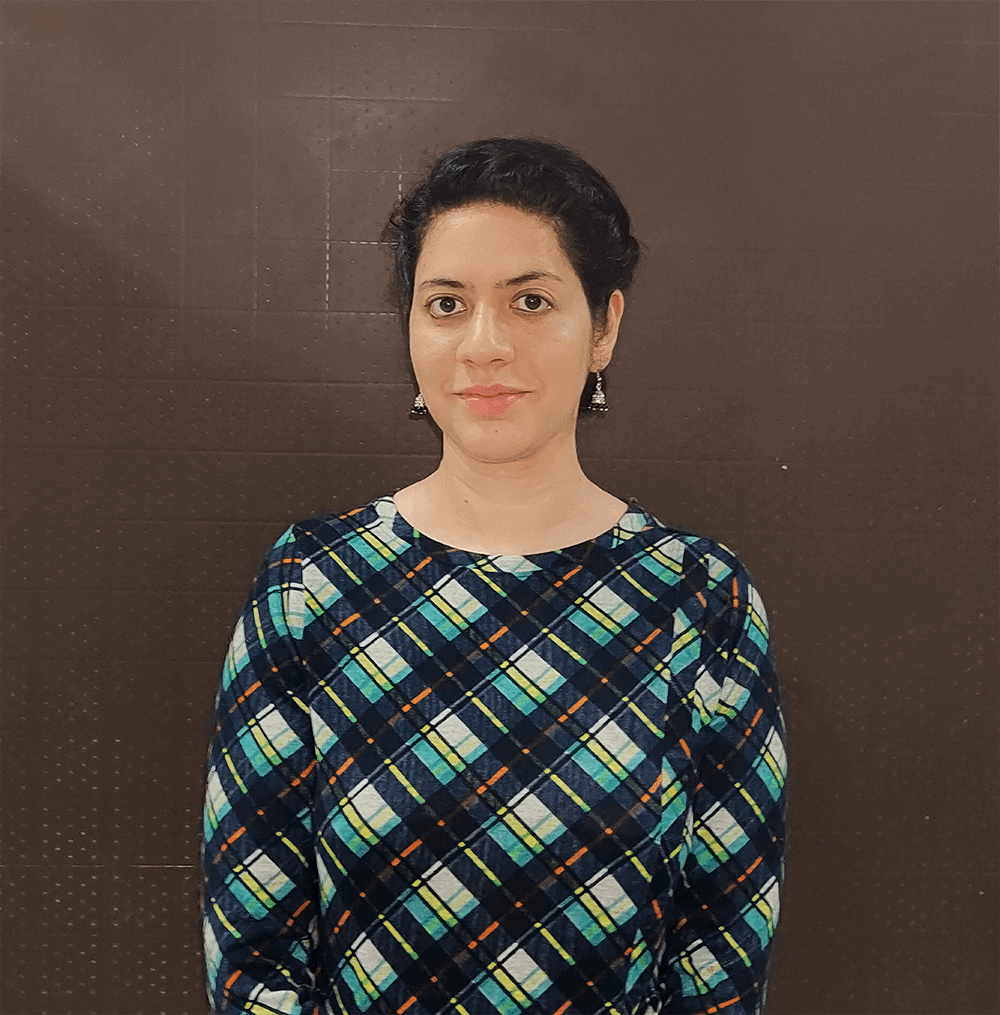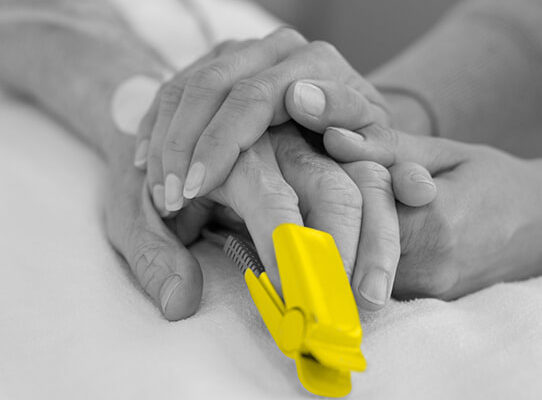H2O.ai is hosting a virtual Meetup on AI and Healthcare: Best Practices for Better Outcomes. Join us on 26th March, for a community discussion to collaborate with us and leading healthcare organizations to share ideas and best practices including predicting hospital staffing needs, ICU transfers, as well as sepsis detection and more. Register for the Virtual Meetup Here.
AI-based healthcare solutions have the potential to make healthcare more affordable and more accessible. H2O.ai , the open-source and automation leader in AI, is empowering leading healthcare companies to deliver AI solutions that are changing the industry. We are already working with top healthcare companies, including Change Healthcare , Armada Health , Kaiser Permanente , and HCA , and its products include industry-leading features for machine learning interpretability required by the healthcare industry for compliance purposes. Here are some of the use cases on which H2O.ai is working with its customers and delivering world-class solutions.
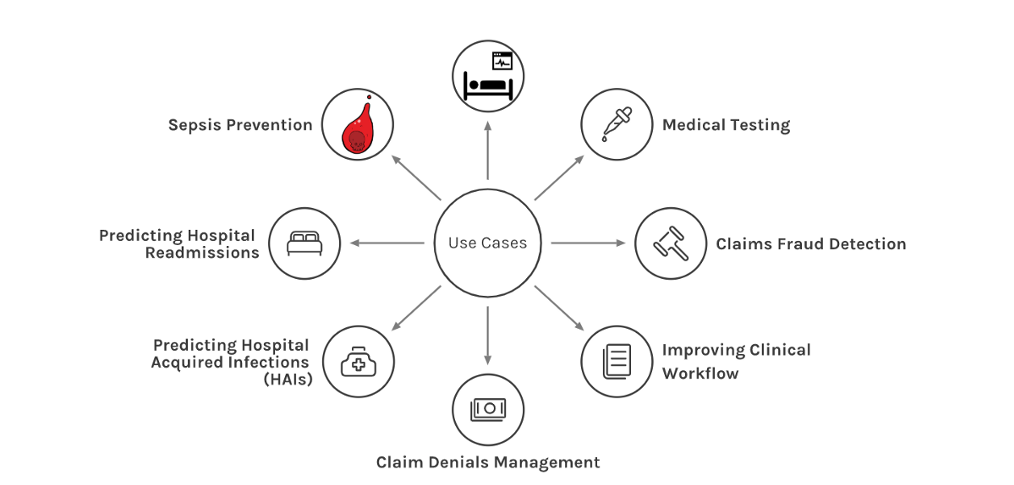



Being able to predict clinical deterioration is a priority for hospitals today. Unrecognized precursors could lead to potentially preventable mortality and morbidity, apart from the extra costs that the patients will have to entail. The majority of the mortality rates are associated with patients who require an unplanned transfer to the ICU (Intensive Care Unit). Studies have shown that mortality rates in such conditions can be as high as 67%.
The patients’ data is recorded in the Clinical EHR (electronic health record) systems. This data, along with other real-time data, can be used by robust machine learning models to identify subtle patterns in data and create an early warning system for clinicians so they can intervene before the ICU transfer is needed.
Medical Testing
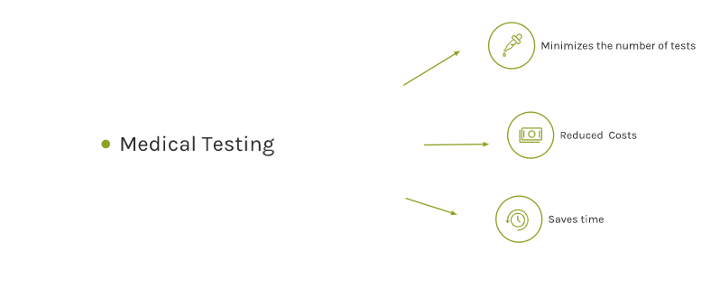

A lot of times, patients are required to undergo testing or routine tests that are rarely used for diagnoses. This is one of the main contributors of waste in healthcare and can significantly raise the patient’s hospital cost. AI can be a gamechanger in such a scenario. Machine learning models can be created using information from the patient’s EHR, along with data from pharmaceutical companies. These models can then be deployed into AI-based applications, which can help in predicting which tests are likely to produce useful results for a particular patient and which are not, taking into account the patient’s medical history and current symptoms.
Improving Clinical Workflow
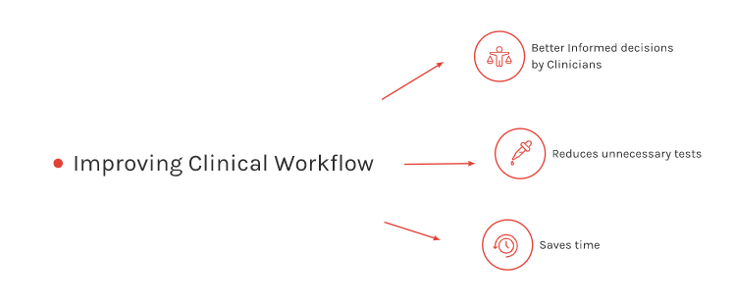

AI-powered decision-based systems empower clinicians to make better data-driven decisions. Such systems can provide a second opinion on a problem or point out some information that they may have missed. Either way, hospitals today are overworked and understaffed, and this could lead to a potential diagnosis error. Integrating AI systems in the clinical workflow can help the doctors make better and more informed decisions.
Claims Fraud Detection & Claim Denials Management
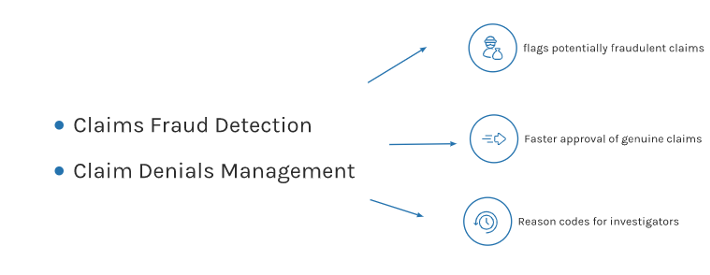

The issue of fraudulent claims in healthcare isn’t new, and it is estimated that approximately 3% of all the healthcare claims in the United States alone are fraudulent. Existing solutions comprise of either manually reviewing the claims or using rule-based methods. The manual work doesn’t scale across the billions of claims submitted per year. Rule-based methods, on the other hand, are either too expensive or too rigid to adapt to everchanging fraud situations.
AI, especially time series modeling, is particularly good at looking at a series of complex transactions and finding anomalies. Machine-learning techniques can find suspicious transactions and networks of transactions. These transactions are flagged for investigation before being paid. This can help in getting rid of fraudsters and thereby considerably reduce costs for both payers and patients,
Similarly, an AI approach could also be used to streamline the claims denial management process. Claims that have a high likelihood of being paid can be cleared out first. Additionally, the models can also provide reason codes which would, in turn, provide a basis for the approval or denial of a claim.
Predicting Hospital Acquired Infections (HAIs)
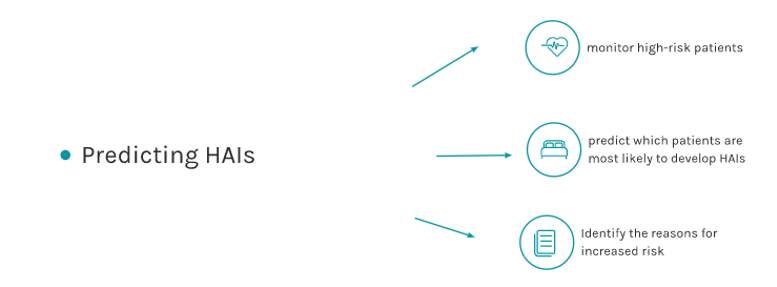

Hospital or healthcare-acquired infections (HAIs) refers to the infections that patients get while receiving treatment for medical or surgical conditions. Central-line associated bloodstream infections (CLABSIs) are a type of HAI with a reported mortality of 12%–25%(according to CDC).
By utilizing the historical data of patients, along with treatment and staff history, Machine learning models can be employed to predict which patients have the highest likelihood of developing HAIs. These models and results are supplemented with robust reason codes that enable clinicians to recommend treatments and use preventative measures for future patients.
Predicting Hospital Readmissions
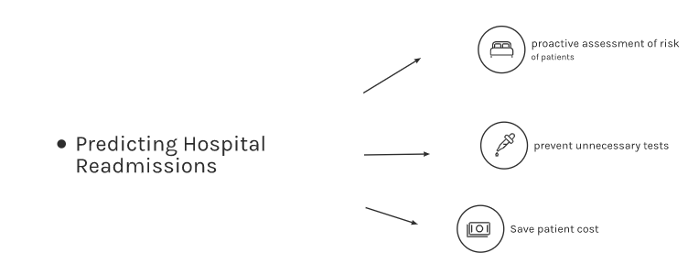

Hospital Readmissions, in the case of patients with a chronic illness, are very common. Ongoing studies have shown that the probability of readmission for such cases within the next 30 days is as high as 25%. Data pertaining to the patient’s recent care, current condition, treatment, home life, and other risk factors from electronic medical records can be utilized by ML models to provide a proactive assessment of the patient’s risk and notify clinicians while the patient is still hospitalized.
Sepsis Prevention


Sepsis is a life-threatening condition that arises when the body’s response to infection causes injury to its tissues and organs. It is one of the leading causes of preventable death in U.S. hospitals. Diagnosing Sepsis can be difficult because Sepsis is a very heterogeneous syndrome. This is because other disorders can show signs and symptoms similar to Sepsis, and there are no reliable biomarkers before onset.
AI models can help in early detection and intervention, which are the key to reducing mortality. By leveraging patients’ historical data and routine vital signs and metabolic levels from electronic medical records, machine learning models can highlight patients who are at the risk of Sepsis, even before they are admitted to ICU. An AI-guided approach can allow clinicians to get prior knowledge of the condition and even predict an adverse event.
AI technologies can help address critical health challenges. It can empower the Doctors and caregivers to make more accurate decisions backed by data. AI can revolutionize the healthcare industry in more ways than one ultimately democratizes healthcare for the benefit of all.






